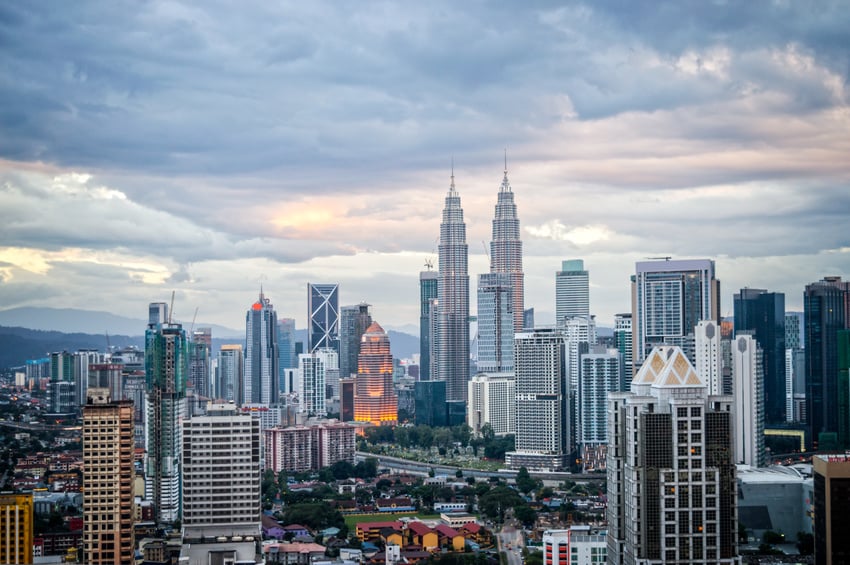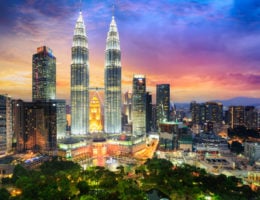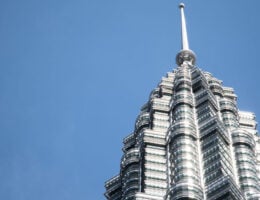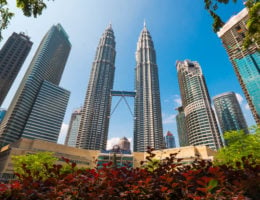The Carbon Capture, Utilization and Storage Bill 2025 has been passed by the Dewan Negara and is, at the time of issuance of this client alert, pending Royal Assent. Once the Royal Assent has been provided, the Carbon Capture, Utilization and Storage Act 2025 will be enacted (CCUSA). The CCUSA establishes a robust legal and regulatory framework for CCUS cycle from carbon dioxide capture, transportation, utilization, and storage.
Malaysia is slated to have a comprehensive framework to regulate, implement and enforce actions/initiatives that is aimed to lead towards a low-carbon economy. The Ministry of Natural Resources and Environmental Sustainability is leading the initiative for the proposed enactment of the Climate Change Act by issuing a consultation paper to obtain comments and feedback. The introduction of a Climate Change Act is the result of Malaysia’s determination to honor its commitment under the Paris Agreement and also to reduce greenhouse gas emissions in Malaysia.
On 26 July 2024, the Ministry of Energy Transition and Water Transformation announced the introduction of the Corporate Renewable Energy Supply Scheme, set to commence in September 2024. This initiative aims to enhance corporate companies’ access to green electricity supply through an open grid access system whereby third parties can supply or purchase electricity via the grid network system with a predetermined system access charge.
The Government of Malaysia has on 15 April 2024 announced that it will establish an Energy Exchange Malaysia (“ENEGEM”) to facilitate cross-border sales of green electricity to neighboring countries, namely Singapore and Thailand. The ENEGEM platform will implement cross-border energy sales based on the latest Guide for Cross-Border Electricity Sales issued by the Energy Commission of Malaysia.
Excerpt: The Energy Commission of Malaysia has on 1 April 2024 announced that it will undertake the 5th round of competitive bidding process under the Large Scale Solar Program (LSS) or LSS-Peralihan Tenaga SuRiA (“LSS PETRA”). A total solar quota of 2,000MWac will be allocated and four packages, ranging from 1MWac to 500MWac will be offered to the qualified developers (companies or consortiums). This initiative is part of the government’s ongoing efforts to expand renewable energy sources and to ensure a continuous energy supply in the country.
On 27 July 2023, the Malaysian Ministry of Economy has published Part 1 of the National Energy Transition Roadmap (“NETR Part 1”) to effectively manage energy transition. Energy transition signifies a shift from a fossil fuel-dominated energy system to a greener system based on clean and renewable energy sources. The NETR Part 1 sets the direction of the Malaysian government in developing future capabilities and shaping demand in the green energy market, by providing ten flagship catalyst projects based on six energy transition levers.
The Energy Commission of Malaysia has recently issued a public consultation paper to collect feedback from the public to be used as a basis of consideration by the Ministry of Natural Resources, Environment and Climate Change to propose regulations for off-border electricity exportation and importation activities.
In brief The Minister of Natural Resources, Environment and Climate Change, had on 9 March, announced several revisions to the CGPP as follows: The Energy Commission, as the regulator of the CGPP, had issued a revised information guide (“Guide”) on 17 April 2023 which can be downloaded from their website…
Malaysia recently launched the Corporate Green Power Programme (CGPP), a renewable energy initiative that allows corporate consumers to virtually purchase solar energy from solar developers. This is achieved through the use of virtual power purchase agreements, or Corporate Green Power Agreement. This alert explains the mechanism of CGPP and sets out the potential investment opportunities and benefits to corporate consumers, particularly those with plants and factories that have high energy usage.
On 7 November 2022, the Energy Commission issued an information guide for the Corporate Green Power Programme. The CGPP aims to promote the adoption of green energy amongst corporate companies in Malaysia through the use of virtual power purchase agreements which is also known as the Corporate Green Power Agreement. The CGPP is open for application starting from 7 November 2022 until 6 February 2023.








